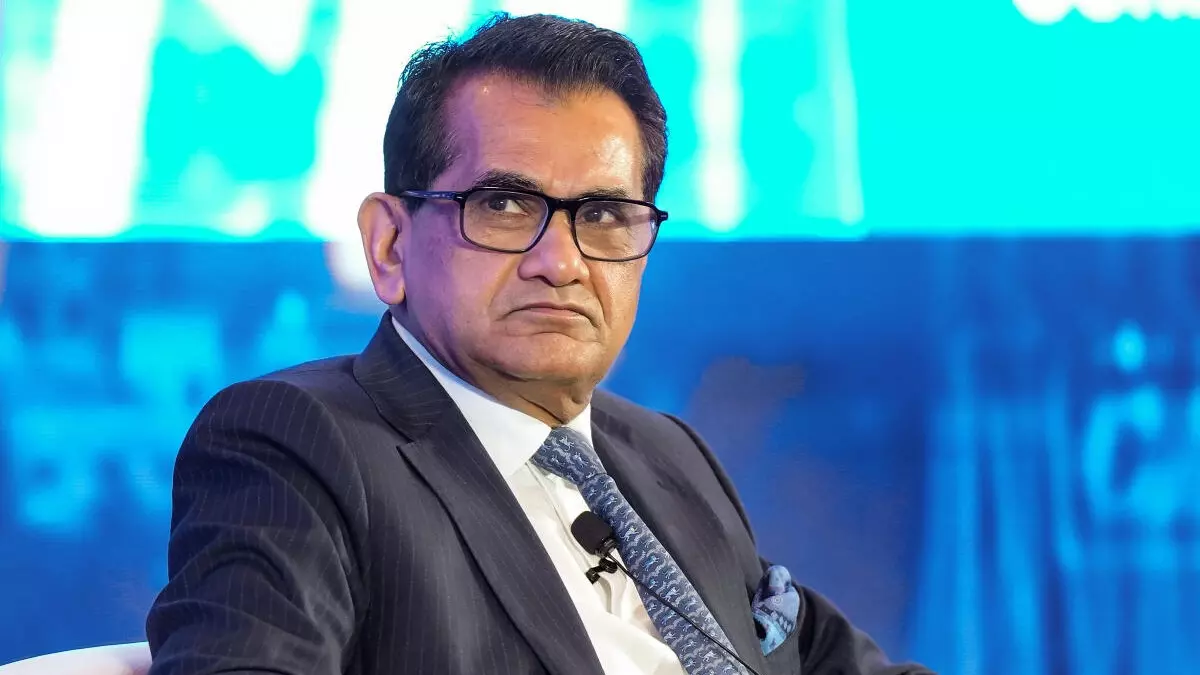
Amitabh Kant resigns as G20 Sherpa after 45 yrs of govt service
text_fieldsNew Delhi: Amitabh Kant, who played a pivotal role in shaping India’s global image and policy initiatives during his decades-long service, has resigned from his post as G20 Sherpa. Kant, a 1980-batch Indian Administrative Service (IAS) officer of the Kerala cadre, was appointed to the role in July 2022, ahead of India’s assumption of the G20 Presidency.
In a reflective post titled “My New Journey” on LinkedIn, Kant announced his decision to step down, marking the end of 45 years in public service. “After 45 years of dedicated government service, I have made the decision to embrace new opportunities and move forward in life,” he wrote. Expressing his gratitude, he said, “I am incredibly thankful to the Prime Minister of India for accepting my resignation as G20 Sherpa and for having given me the opportunity to drive a range of developmental initiatives and contribute to the growth, development, and progress of India.”
Kant was a central figure in India’s G20 leadership and negotiations. Describing his tenure as G20 Sherpa as one of the most significant milestones in his career, he highlighted India’s achievements during the 2023 Presidency. “India executed one of the most inclusive, ambitious, action-oriented, and decisive G20 presidencies ever seen in the history of the forum,” he noted. Despite global geopolitical tensions, India secured a unanimous consensus on the New Delhi Leaders’ Declaration, focusing global attention on pressing developmental priorities such as digital public infrastructure, multilateral financial reforms, climate finance, and women-led development.
He also credited the extensive domestic outreach during the presidency. “India held G20 meetings across every state and Union Territory, which contributed significantly to cooperative federalism by beautifying and upgrading cities, engaging local artists and craftsmen, and promoting local cuisines,” he said. He further highlighted the successful inclusion of the African Union into the G20, fulfilling India’s promise of global inclusivity and partnership with the Global South.
Prior to his role as Sherpa, Kant served as the Chief Executive Officer (CEO) of NITI Aayog from 2016 to 2022, where he led several transformative initiatives. He was instrumental in the Aspirational Districts Programme, which focused on uplifting 115 of India’s most underdeveloped districts through improvements in socio-economic indicators. He also championed the promotion of digital public infrastructure and spearheaded production-linked incentive schemes to boost domestic manufacturing. Under his leadership, NITI Aayog advanced climate-focused missions such as the Green Hydrogen Mission, and drove innovation through programmes like the Atal Innovation Mission.
As Secretary of the erstwhile Department of Industrial Policy and Promotion (now DPIIT), Kant was a key figure in liberalisation and reform. He played a vital role in improving ease of doing business and in launching landmark initiatives such as 'Make in India' and 'Startup India', which continue to shape India’s manufacturing and entrepreneurial ecosystems.
Reflecting on his early career in Kerala, Kant recalled it as the foundation of his administrative journey. “Kerala was the first home to my IAS career, and I drew deeply from its communities — initiating the 'God's Own Country' campaign, supporting the expansion of Calicut Airport, and working closely with the fishermen and women of Kerala,” he said.
He also spoke of his time in the Ministry of Tourism as Joint Secretary, where he launched the iconic 'Incredible India' campaign. “India has, and will always be, Incredible. In a small way, I have contributed to helping the world recognise that,” Kant said, emphasising the campaign’s impact on the nation’s economy and global identity.
Kant expressed his appreciation for the guidance and support of key ministers, including Finance Minister Nirmala Sitharaman and External Affairs Minister S. Jaishankar. Looking ahead, he said he is eager to contribute to India’s continued transformation toward 'Viksit Bharat' (Developed India) by supporting free enterprise, startups, think tanks, and academic institutions.
With PTI inputs



















